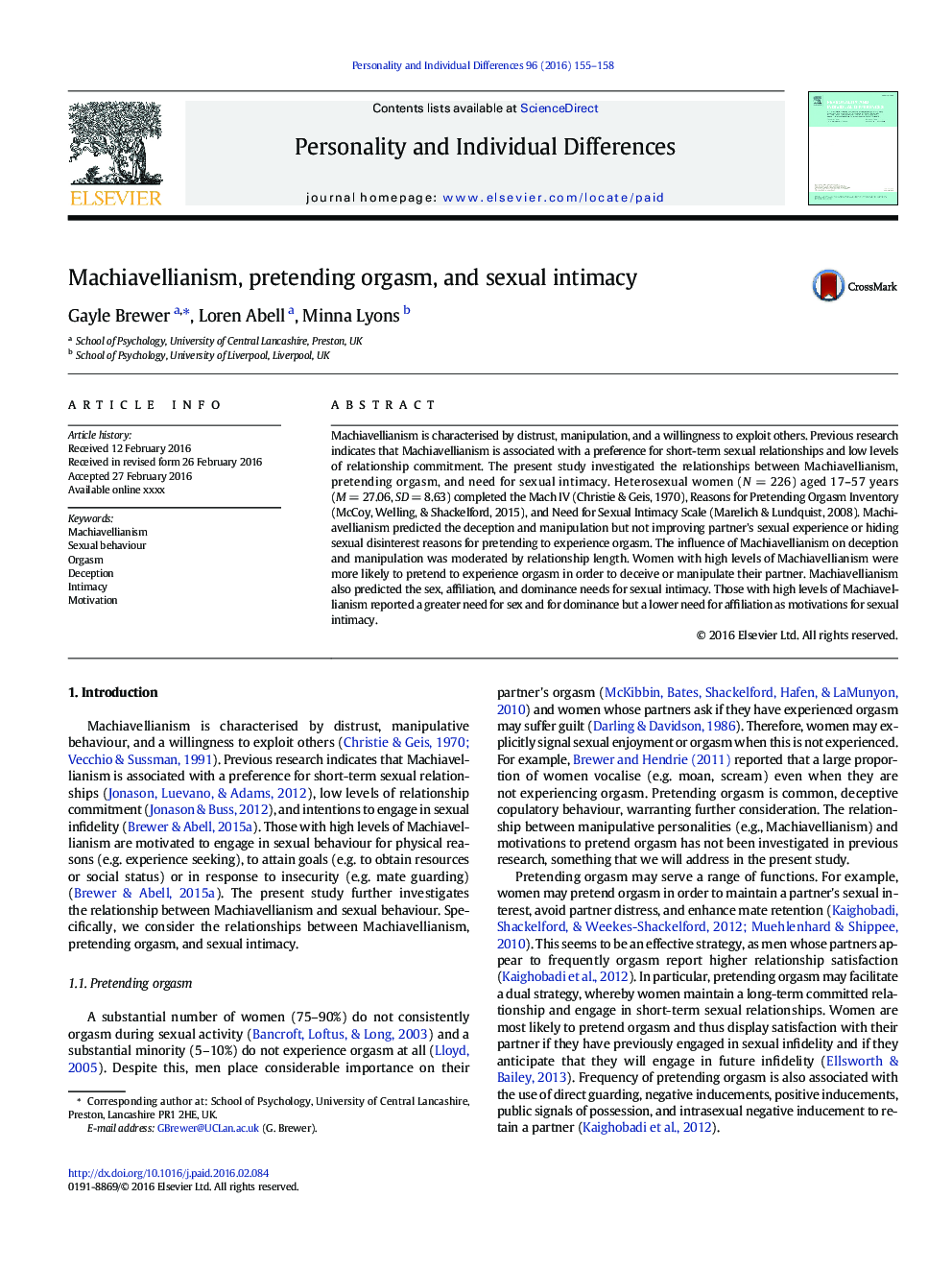| Article ID | Journal | Published Year | Pages | File Type |
|---|---|---|---|---|
| 7250085 | Personality and Individual Differences | 2016 | 4 Pages |
Abstract
Machiavellianism is characterised by distrust, manipulation, and a willingness to exploit others. Previous research indicates that Machiavellianism is associated with a preference for short-term sexual relationships and low levels of relationship commitment. The present study investigated the relationships between Machiavellianism, pretending orgasm, and need for sexual intimacy. Heterosexual women (NÂ =Â 226) aged 17-57Â years (MÂ =Â 27.06, SDÂ =Â 8.63) completed the Mach IV (Christie & Geis, 1970), Reasons for Pretending Orgasm Inventory (McCoy, Welling, & Shackelford, 2015), and Need for Sexual Intimacy Scale (Marelich & Lundquist, 2008). Machiavellianism predicted the deception and manipulation but not improving partner's sexual experience or hiding sexual disinterest reasons for pretending to experience orgasm. The influence of Machiavellianism on deception and manipulation was moderated by relationship length. Women with high levels of Machiavellianism were more likely to pretend to experience orgasm in order to deceive or manipulate their partner. Machiavellianism also predicted the sex, affiliation, and dominance needs for sexual intimacy. Those with high levels of Machiavellianism reported a greater need for sex and for dominance but a lower need for affiliation as motivations for sexual intimacy.
Related Topics
Life Sciences
Neuroscience
Behavioral Neuroscience
Authors
Gayle Brewer, Loren Abell, Minna Lyons,
